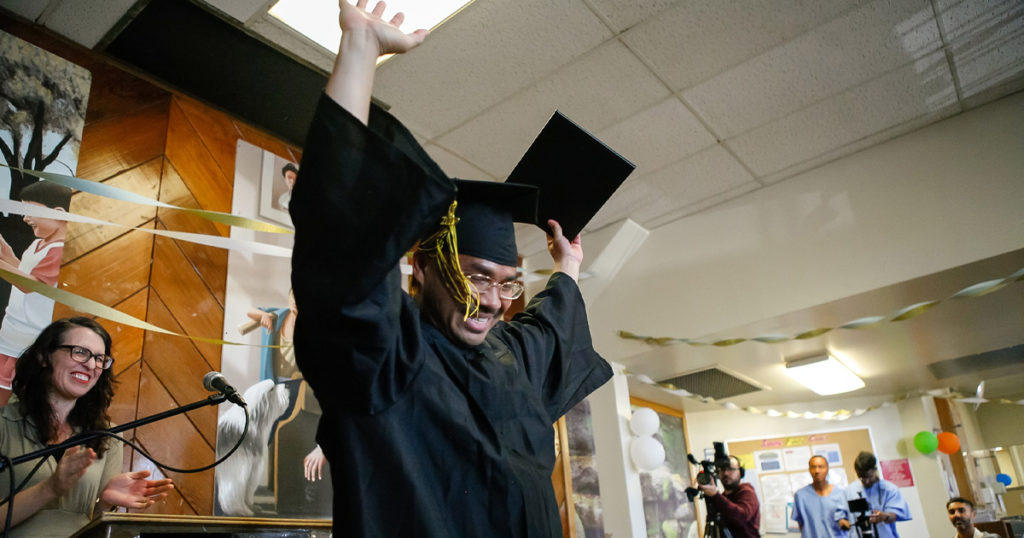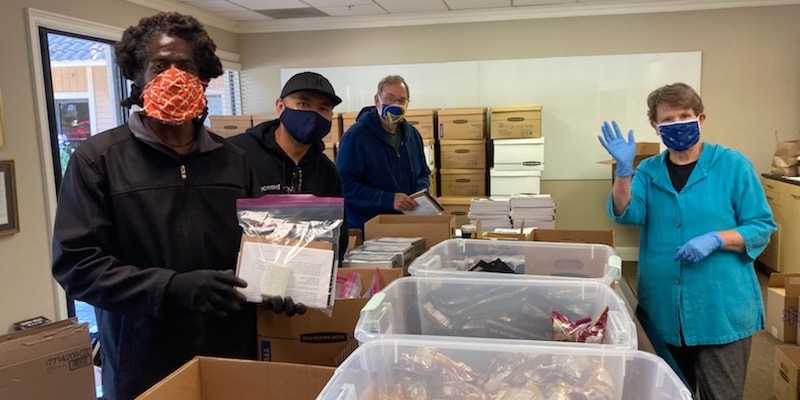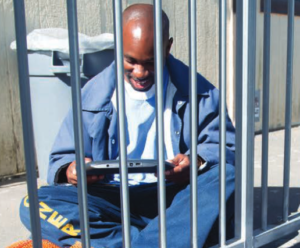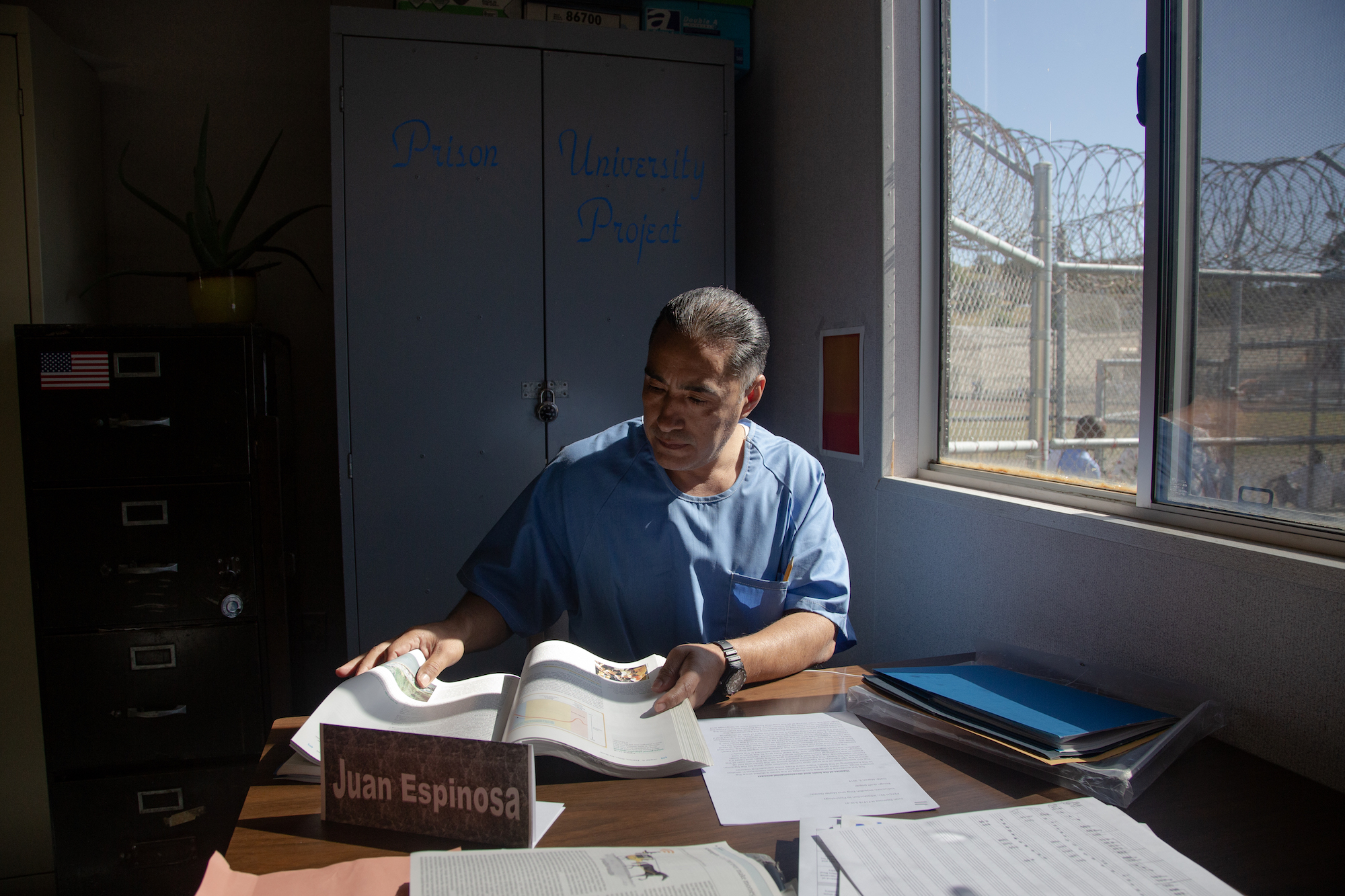
Grantee Spotlight: Mount Tamalpais College
By GO HumanityMount Tamalpais College is excited and honored to be a recipient of a Foundation Beyond Belief grant. Known for nearly 25 years as the Prison University Project, we recently became an independent college and changed our name to Mount Tamalpais College. Since our founding in 1996, we have been on a mission to make higher education more accessible for incarcerated people. We offer an Associate of Arts degree program and College Preparatory Program at San Quentin State Prison that serve over 500 students each year.
This summer presented new challenges for us as San Quentin became one of the largest COVID-19 hotspots in the country. As of late October, there have been over 2,200 confirmed cases of the virus among the incarcerated population (approximately 75% of the total population) and 28 deaths. Many of our current and former students are among these numbers, as well as hundreds of San Quentin staff members.
With educational programming suspended and access to students disrupted, we were forced to grapple with difficult questions: what is the role of a higher education institution in the face of a pandemic? And how could we best deploy our knowledge, resources, relationships, and experience strategically, to ensure the safety and well-being of the most vulnerable members of our community?
One solution we arrived at was a care package initiative. In an effort to mitigate the devastating effects of the virus on the physical and mental health of those impacted by the prison system, we pivoted from providing education to roughly a tenth of the prison’s residents, to providing essential resources to the whole community at San Quentin, as well as other prisons in California. We sent two rounds of care packages—including healthy snacks, hygiene supplies, COVID-19 information, letter writing materials, and other reading materials—to the entire incarcerated population of San Quentin.

Additionally, San Quentin’s leadership allowed us to provide magazines, books, art supplies, hand-crank radios, movies, and other digital content (via closed circuit television) to people throughout the prison. We also did all we could to support prison staff, including advocating for plentiful PPE, as well as providing food and snacks, including two day-long staff appreciation days with food trucks, and providing a mobile shower unit on-site for an entire month. After the success of our initiatives at San Quentin, we expanded these care packages and staff support activities to Avenal State Prison, the California Institution for Men, and the California Institution for Women. We plan to continue sending packages to other prisons across the state.
 Just a few months ago, we were planning for graduation, the summer semester, a gala fundraising event, and another accreditation-related site visit on our road towards initial accreditation. Today, we are asking much bigger questions about the role of a college during times of crisis. As mentioned, our initial priority was asking how we could most immediately support our students, to safeguard their mental and physical health, and let them know they are not forgotten. But other questions about the fate of our program and the future of higher education loom large: given the uncertainty concerning when we will be able to finally go back to “normal” classroom activity in the prison, what would quality education look like without face-to-face interaction? What role might technology play in reopening the program? How would we remotely provide the intensive learning support that we know is so critical to our students’ success? And even more broadly, what does this crisis mean for the field of higher education in prison more broadly? Or for higher education generally, as campuses everywhere struggle with the new reality of distance learning, uncertain enrollment, and budget concerns? What can we learn from others, and what type of leadership might we offer in this larger landscape?
Just a few months ago, we were planning for graduation, the summer semester, a gala fundraising event, and another accreditation-related site visit on our road towards initial accreditation. Today, we are asking much bigger questions about the role of a college during times of crisis. As mentioned, our initial priority was asking how we could most immediately support our students, to safeguard their mental and physical health, and let them know they are not forgotten. But other questions about the fate of our program and the future of higher education loom large: given the uncertainty concerning when we will be able to finally go back to “normal” classroom activity in the prison, what would quality education look like without face-to-face interaction? What role might technology play in reopening the program? How would we remotely provide the intensive learning support that we know is so critical to our students’ success? And even more broadly, what does this crisis mean for the field of higher education in prison more broadly? Or for higher education generally, as campuses everywhere struggle with the new reality of distance learning, uncertain enrollment, and budget concerns? What can we learn from others, and what type of leadership might we offer in this larger landscape?
In the face of these challenges, we are now tapping more deeply into our creativity and adaptability as a higher education institution, and thinking about what our students and the entire community of San Quentin need most right now.

We are using this time when our academic program is not running to focus on three main initiatives to support our current and former students. For our current students, we are helping students complete some of the classes that were shut down mid-semester, sending non-credit educational materials to help them stay academically engaged, and exploring options for providing computer access to eventually provide educational programming during periods of disruption. We are building out our alumni support by providing professional development, employment readiness, and computer literacy workshops. Finally, for the broader public, we are launching a Community Dialogs program in November that will engage the broader community in conversation about the complexities of the current situation in prisons, and sharing letters from inside prisons on our website and social media to amplify incarcerated voices.
During this time, there has been one consistent, tremendous source of hope: the outpouring of support from our community — including over 1,000 first-time donors since May, dozens of volunteers assembling over 18,000 care packages, thousands of donated magazines and hundreds of books that are now being regularly delivered to San Quentin, and the support of institutional partners like Foundation Beyond Belief. We are humbled by and grateful for this support that allows us to think creatively, adapt to this moment, collaborate with an incredible community of bright and caring minds, and continue our work in these most challenging of times
By now you can imagine how important Mt. Tamalpais College’s work is. Now imagine how much good they could do with even more support. Chipping in a small amount to our Annual Appeal today will help give larger, game-changing grants to organizations like Mt. Tamalpais in 2021.

